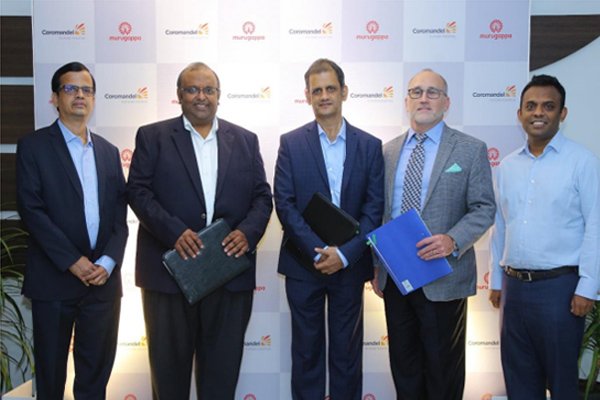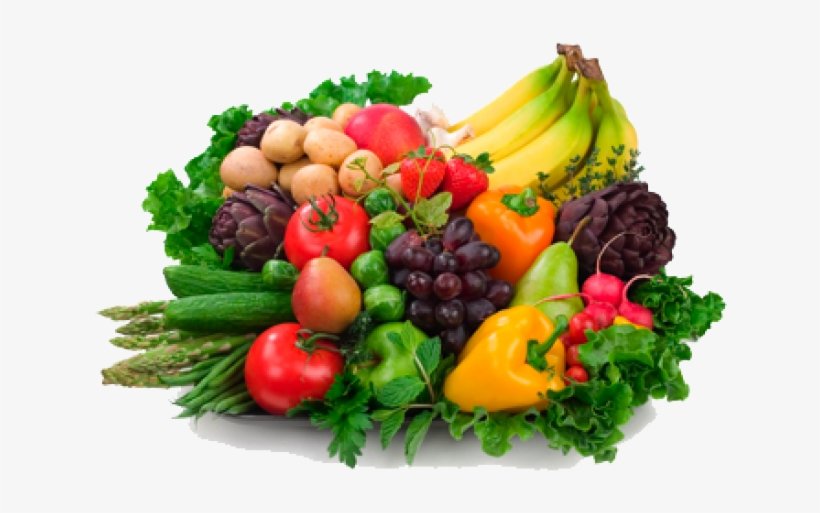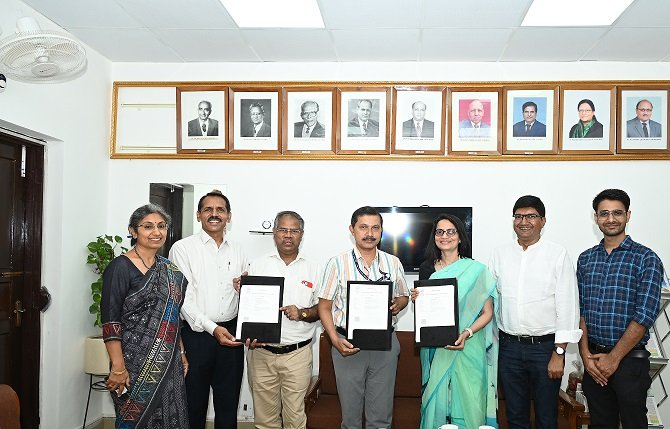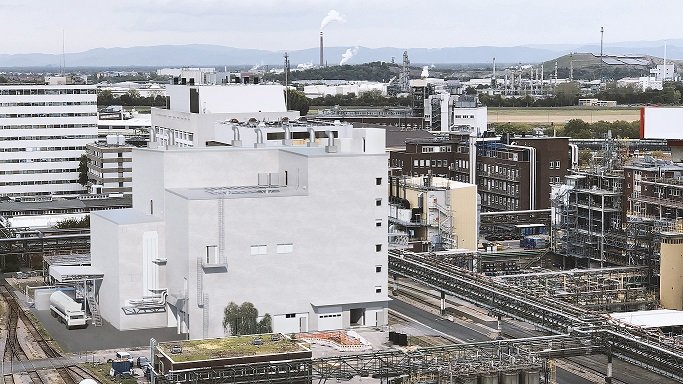Coromandel to set up Rs 400 Cr Sulphuric Acid plant at Visakhapatnam
The company has also signed technology partnership agreements with MECS (Monsanto Enviro-Chem Systems) and TKIS (ThyssenKrupp Industrial Solutions).
Hyderabad based Coromandel International Limited, the country’s second largest Phosphatic fertilizer player and part of Murugappa Group, announced the project initiation for setting up a new 1650 Metric Tonnes per day design capacity sulphuric acid plant at its fertiliser complex in Visakhapatnam at a cost of Rs 400 crores. The announcement was made by Arun Alagappan, Executive Vice Chairman, Coromandel International Limited. The company has also signed technology partnership agreements with MECS (Monsanto Enviro-Chem Systems) and TKIS (ThyssenKrupp Industrial Solutions).
The new sulphuric acid plant for which the investment has been announced will increase the sulphuric acid production capacity by a further 5 Lakh Metric Tonnes per annum from the current level of 6 Lakh Metric Tonnes per annum, thereby resulting in a combined capacity of 11 lakh Metric Tonnes. The investment is in line with Coromandel’s long-term objectives to secure key raw materials for its fertiliser production. The 1650 TPD sulphuric acid plant project will be setup within Coromandel’s existing Visakhapatnam plant premises. The Visakhapatnam manufacturing unit of Coromandel has a production capacity of 1.3 million Tonnes per annum complex fertilisers and a captive phosphoric acid production capacity of close to 4 Lakh Tonnes per annum. The new Sulphuric acid plant at Vizag will reduce the import dependence considerably and ensure sustainable production of Phosphoric acid, one of the key raw materials for phosphatic fertiliser manufacturing.
The new state of the art sulphuric acid plant is being built on par with globally best technology standards to control emissions. The steam generated from the process shall also be used for captive power generation.
Commenting on the setup of new sulphuric acid plant, Arun Alagappan said, “India is a net importer of sulphuric acid, and the 3rd largest importer globally, accounting for close to 20 Lakh Metric Tonnes of imports. Coromandel has announced the setting up of a new 1650 TPD sulphuric acid plant at Visakhapatnam. Considering the essential nature of fertilisers, this investment will improve the self-sufficiency and availability of phosphatic fertiliser in the country. I would like to thank the leadership team of MECS and TKIS for being with us here today for the event. This project is an important one for all of us involved and will play an important role in reducing the sulphuric acid imports into our country.”
Speaking on the event, Brian Blair, Global Licensing Manager, MECS USA said, “We have worked in close partnership with Coromandel International Limited to be able to guarantee the precise performance and emissions control needed for the project to meet stringent environmental standards and production objectives. We are excited to be part of a project that provides Coromandel a state-of-the-art sulphuric acid plant with carbon free power generation and to be ableto support it with our many decades of expertise in sulphuric acid plant technology.”
Speaking on the occasion, Rajesh Kamath, CEO & MD TKIS India said, “Coromandel International remains one of our most esteemed customer in the Phosphatic Fertiliser space. Our relationship with them dates back to the nineties when we set up a ammonia tank terminal in Ennore. This was followed by many Di-Ammonium Phosphate/NPK Fertiliser plants, cryogenic ammonia storages and Phosphoric acid plant. The sulphuric acid project is one more opportunity to take our excellent business relationship forward.”
The company has also signed technology partnership














